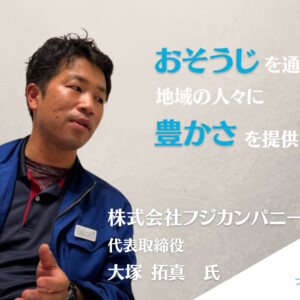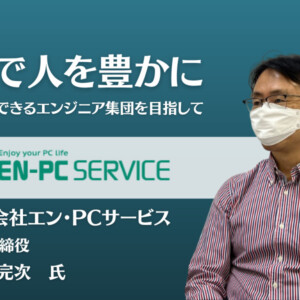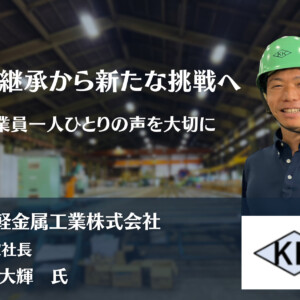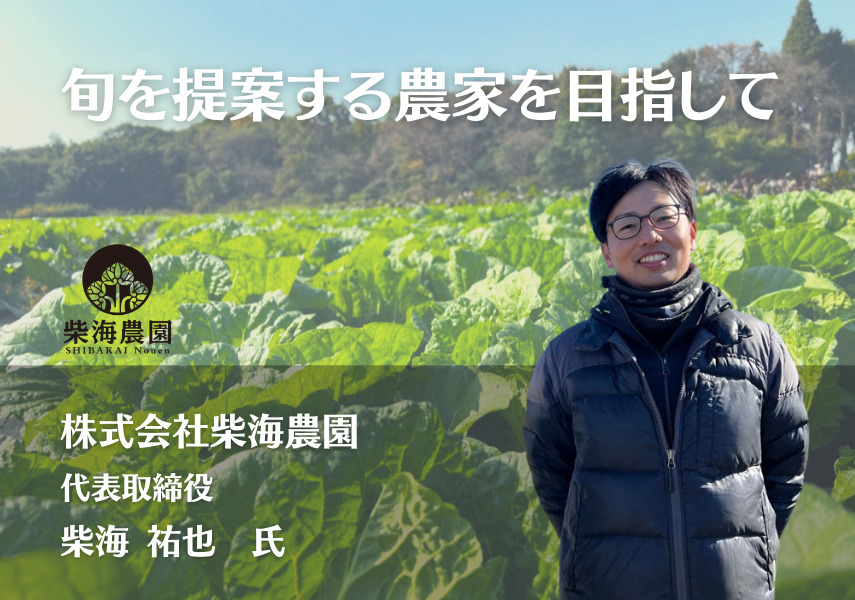
Aiming to be a farmer who proposes the best of the season | Shibakai Farm Corporation
It’s taken for granted that supermarkets are lined with beautifully shaped and colored vegetables. Many of you may have this image. Are you conscious of choosing seasonal vegetables? At Shibakai Farm, we cultivate about 60 types of vegetables throughout the year without using pesticides or chemical fertilizers. In addition to seasonal vegetables, we also focus on processed foods such as pickles and jams to avoid wasting vegetables.
This time, we have spotlighted Mr. Shibakai, the president of Shibakai Farm, who has been continuing organic farming for 15 years and strives every day to provide delicious seasonal organic vegetables to customers. We will deliver Mr. Shibakai’s passionate thoughts to everyone. About Shibakai Farm’s business
About Shibakai Farm’s business

Could you first tell us about your company’s business?

Shibakai Farm is an organic farmer that grows seasonal vegetables. We cultivate a wide variety of about 60 types of vegetables throughout the year without using pesticides or chemical fertilizers, and we deliver them at the best timing when they can be enjoyed at their tastiest.
For example, when leafy greens are in season, we create a salad set filled with just leafy greens and deliver it to our customers, who are pleased with it. Another feature of Shibakai Farm is that we sell vegetables directly. Our customers include not only individuals but also restaurants.
About the reason for starting the business

It’s wonderful to be able to eat seasonal vegetables! The farming method of organic cultivation and growing many types of vegetables seems very challenging. What was the impetus for adopting this style?

The reason I aspired to be an organic farmer was because I studied organic cultivation at university. I always wanted to put what I learned into practice. To do that, I stayed with farmers to gain practical experience and went to university to resolve any questions that arose. After graduating from university, I worked for three years at a national farm’s restaurant called “Farmer’s Kitchen,” where I learned about vegetable procurement, customer service, and management. Then, in 2009, I started organic farming in Inzai City, Chiba Prefecture.

I heard that your family was involved in agriculture. Could you tell us what you were conscious of when you started organic farming?

I started organic farming in 2009, but it was not in the form of taking over the agriculture that my parents were doing. However, I adopted my parents’ method of selling, which was direct sales. Originally, my parents were tomato farmers, and I had always seen them struggling because they couldn’t get a fair price for their tomatoes in the market. When they started direct selling, tomatoes that were 600 yen per box in the market could be sold for 3,000 yen per box. Furthermore, they had built a relationship of trust with the customers, so when I started farming, I decided to adopt that selling method.
About the most moving experience

Although Shibakai Farm is not a privately-owned farm but rather managed as a company, has there been anything particularly moving for you in running the farm as a company?

Organic farming without pesticides is an unstable production and is challenging every day, but what moves me is that it’s not just me, but the staff together who have built up the farm to what it is today. There can be gaps between what I think as the owner and what gets communicated to the staff. There have been significant misunderstandings with the staff in the past, but now I’m working with a team of trustworthy colleagues, which gives me a great sense of fulfillment.

I felt a very warm atmosphere the moment I entered your direct sales store. Is there anything you particularly value in your interactions with the staff?

Results are important, but I believe the process is even more crucial. Results in agriculture don’t come immediately. We’ve gradually increased what we can do and have built up small profits over time. It’s more important to consider ‘who are the team members?’ and ‘how do we build our daily relationships?’ I value each day and believe that by having good days, the results will follow.

So, the process of growing both people and vegetables is important.
What are the people you work with like?

They are people who find organic farming ‘interesting’ and are passionate about it!!

Are many of the people working at Shibakai Farm experienced in agriculture?

Agriculture is a minor occupation, so not many are experienced, and there are also those who have no experience in farming.

How did you go about building relationships with the local community after starting Shibakai Farm?

For the first five years after starting organic farming, I was seen as an oddity and was not even approached by locals. They probably thought I was a bright and good-looking young man but that what I was doing was off the wall.
The fields were not as neatly managed as they are now, and it looked like only weeds were growing, not vegetables. The community probably thought I would quit in about three years. But I had determination, worked through the nights, and was even mistaken for a wild boar once. There was a time when I was rustling in the fields and they were convinced it was a wild boar, but it turned out to be me.
Personally, I was desperate. Gradually, the fields improved, and I became recognized by the community, and now they talk to me normally. Continuing is the best way to build trust.

You were mistaken for a wild boar because you worked so hard on the vegetables even at night. Do you own the fields where you grow the vegetables?

No, the fields are not owned by our company. We rent the land from landlords who used to farm but can no longer do so due to aging and other reasons. In essence, I’m entrusted with land that has the landlords’ sentiments, and I always keep in mind to manage it cleanly and hand it over to the next generation.

Not only growing vegetables but also passing it on to the next generation is something you’re conscious of. Shibakai Farm, which always grows a wide variety of seasonal vegetables, seems to be a very rare type of organic farm. How has the response been from those around you?

Shibakai Farm is a challenging farm among organic farmers. I have a curious nature, so there are many things in organic farming that catch my interest. I have a strong desire to ‘try various things,’ ‘learn what I don’t know,’ and ‘become able to do even a little of what I couldn’t do before.’ To others, it may seem like we’re having a lot of fun, with many staff members and a business that’s financially viable. Other farmers have told us that they ‘get energy’ from seeing us, which is very gratifying to hear. They must think our farm shines. It’s really nice to be told, ‘We get energy from you and are able to keep going because of it,’ so I feel that we’re doing the right thing. I’m delighted that there’s at least one person who appreciates our approach, even though we do things our own way.
About the most challenging episode

What has been the most challenging aspect of managing Shibakai Farm so far?

The Reiwa first-year typhoon. It wasn’t just our company, but all of Chiba Prefecture that was greatly affected. It was the strongest typhoon I’ve ever seen in my life. Many farmers’ greenhouses were destroyed, and some decided to quit farming. Right after the typhoon, there was no electricity, so we couldn’t ship out any produce for about two weeks.
The impact of the typhoon wasn’t just immediate; it had long-term effects on the vegetables to be harvested 2-3 months later. Our company has many customers with annual contracts, so if we can’t harvest vegetables, our regular delivery service can’t operate. It was tough, but somehow we managed to get through it.

Based on your experience with that typhoon, have you taken any measures in case a typhoon of the same scale comes again?

We do it every year. Specifically, we have a planting schedule that can withstand typhoons. We’ve tweaked it to avoid the timing of typhoons. The planting schedule is a chart that we share with the staff, detailing when and at what timing to sow the seeds.

It must be quite challenging to sow seeds for multiple crops and in several rounds.

We sow seeds about 400 times a year, which is a major difference from other farmers. At our farm, the process varies depending on the type of vegetable, but we do it either manually or with machines.

It’s a lot of hard work.
Is the driving force behind it the desire to deliver seasonal vegetables?

That’s right.
The axis of our business is to produce only what the customers need and to sell it directly.

By the way, with so many types of seeds, do you ever forget to sow some?

Yes, it happens.
You can only sow once a year, so it’s really disappointing when it happens…

Did you face any difficulties during the COVID-19 pandemic?

When the first state of emergency was declared due to COVID, our shipments to restaurants dropped to zero, and we were left with a surplus of vegetables. However, even in that situation, there were people who helped us.
We managed to get through the tough times thanks to such people. This led to a significant increase in our sales. I deeply realized how important human connections are. Truly, relationships are an asset.
Regarding current business sentiments, important values, and motivation

In continuing with organic farming, what are your feelings, important values, and motivations?

Personally, I find organic farming fascinating because it satisfies my curiosity. I want to increase the number of people who can share this interesting job with me. Through this work, I want to increase the number of people who take responsibility and challenge themselves with difficult tasks. I also frequently visit other farms to embody this myself, absorbing their methods and applying them to my field. It would be great if my activities could increase the number of people who are willing to take on challenges!

It’s because you continue to challenge yourself that similarly minded people gather around you, right? By the way, do other farmers ever ask you about Shibakai Farm’s methods?

Yes, I do get questions. You can tell what someone is thinking by looking into their eyes when they ask a serious question. It shows they are struggling, just like I was. I used to ask questions over and over again, so absorbed that I couldn’t see anything else. For such people, I share everything I know without holding back.

Not only do you grow vegetables, but it seems you are also active in spreading organic farming. What exactly do you do?

I’ve been teaching at Innovation University for about four years. In addition, I give lectures once a year at my alma mater, which has helped me. I do it with the desire to provide options for those who have a strong passion for engaging in organic farming.
About the future vision

Could you tell us about the future vision of Shibakai Farm, which is always growing?

The goal of Shibakai Farm is to “share a life with seasons.” In modern times, where summer vegetables are available even in winter, it’s hard to feel the “seasons.” That’s why I think it’s good to have farmers who propose seasons. Like saying, “Please eat these vegetables in this season.” It would be good to have more farmers who stubbornly stick to their guns like this. There was a time when it was more profitable to deviate from the seasons in the market. Many vegetables are now available year-round, which seems convenient but also leads to the circulation of less tasty vegetables.
Therefore, Shibakai Farm wants to be a farmer that can confidently propose returning to the seasons. I want to strive to be known as Shibakai Farm when people talk about multi-crop organic farming that is also sustainable as a business.

What are the features of Shibakai Farm’s “seasonal vegetable subscription service”?

Because our goal is to deliver seasonal vegetables, we may deliver the same vegetables consecutively and do not include non-seasonal vegetables just to vary the deliveries. So, there might be times when the same vegetables are delivered twice in a row. The concept of “seasonal vegetable subscription” is straightforward for customers, but it takes some time for them to get used to it. Like, “I got sweet potatoes two times in a row”. If it’s always sweet potatoes, then you have to eat them in various ways, which naturally enriches the dinner table.
A word from the Contli editorial department

We appreciate President Shibakai of Shibakai Farm taking time out of his busy schedule for this interview. Before the interview, we had the opportunity to tour the fields of Shibakai Farm. Mr. Shibakai explained each detail meticulously, and his deep passion for vegetables was palpable. His determination to always seek new challenges in order to deliver delicious seasonal vegetables to everyone was very impressive. It’s because the vegetables are grown with care and are seasonal that they are loved by the locals and continue to thrive. We encourage everyone to try them!
Gallery
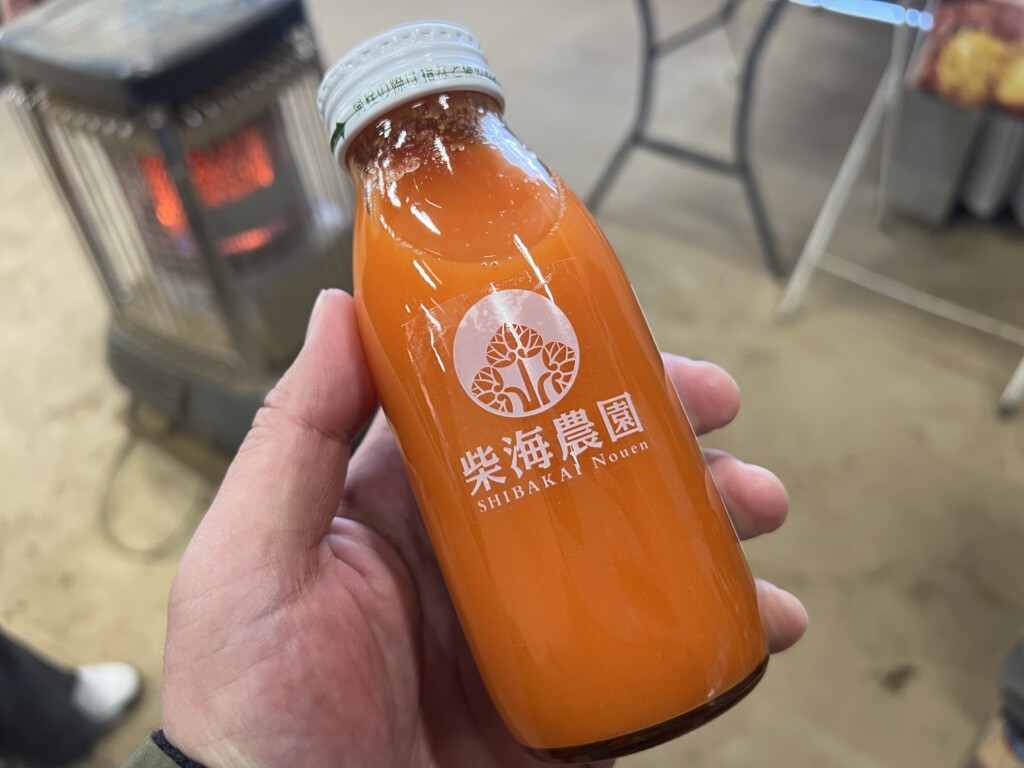
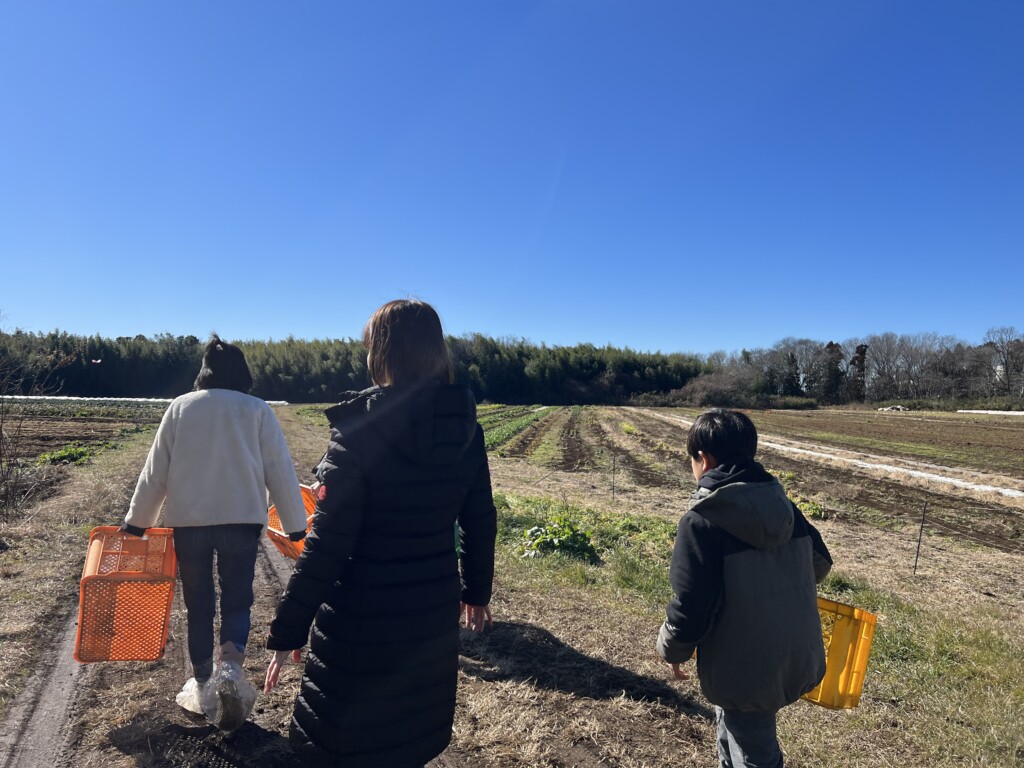
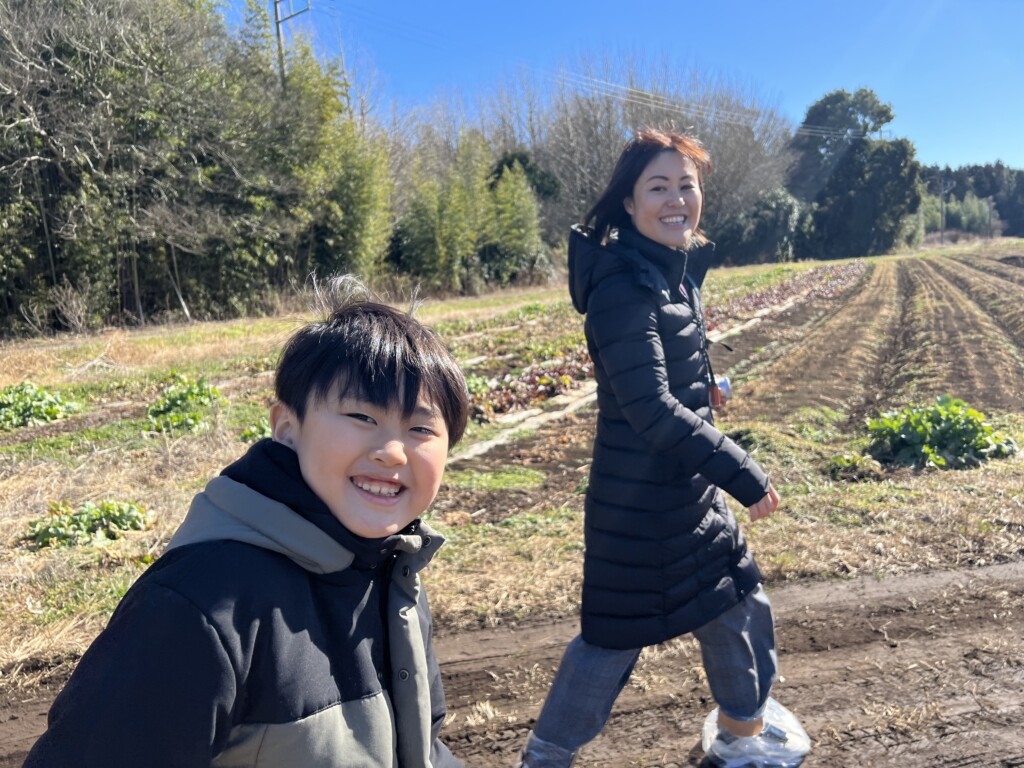

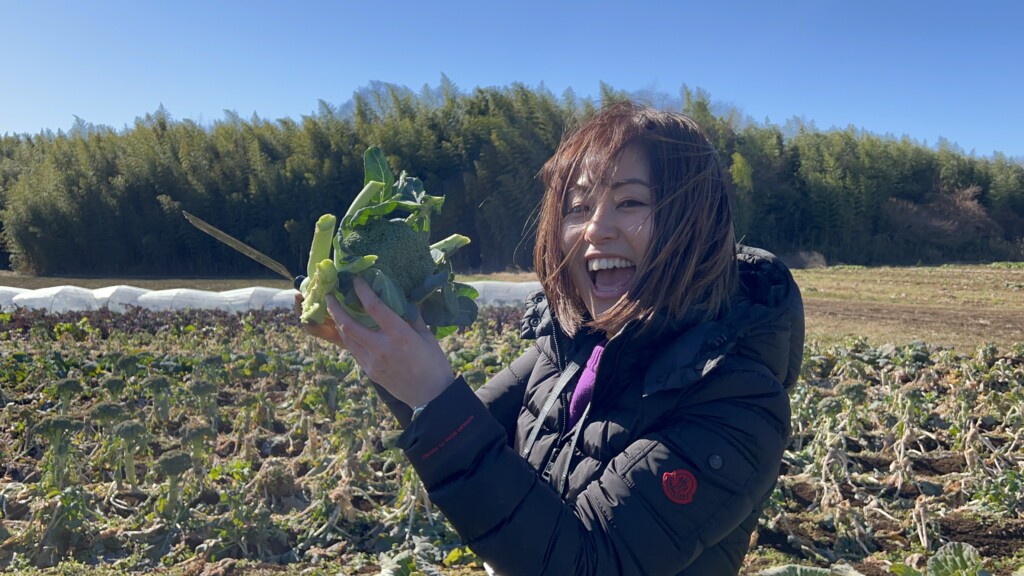
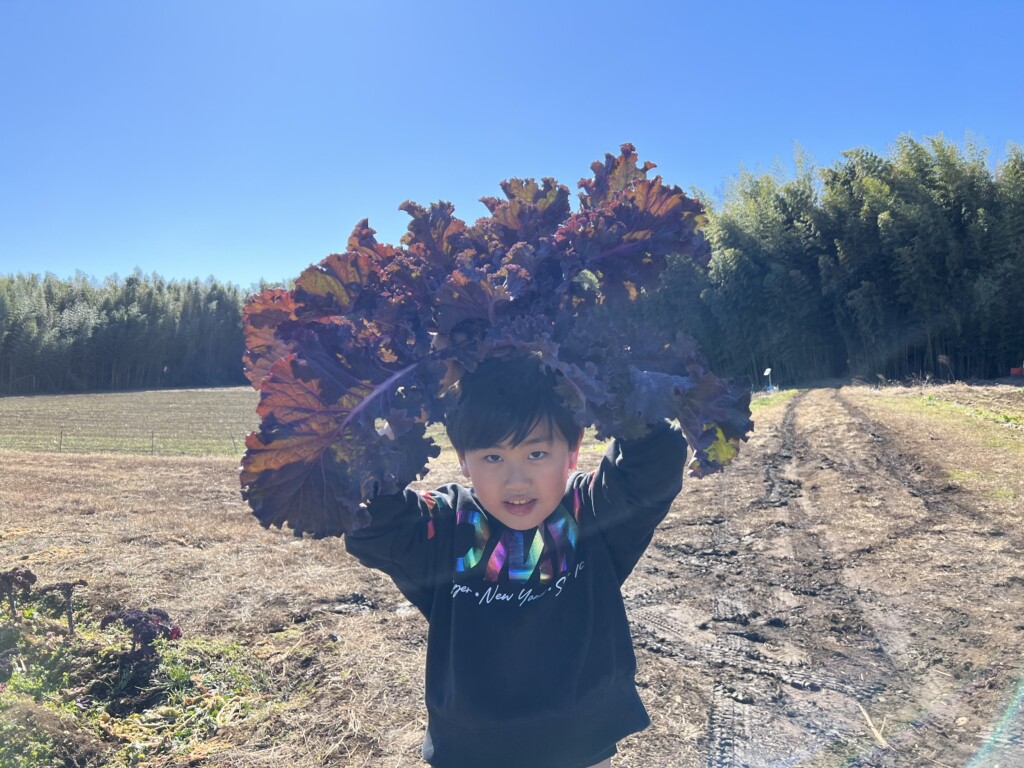
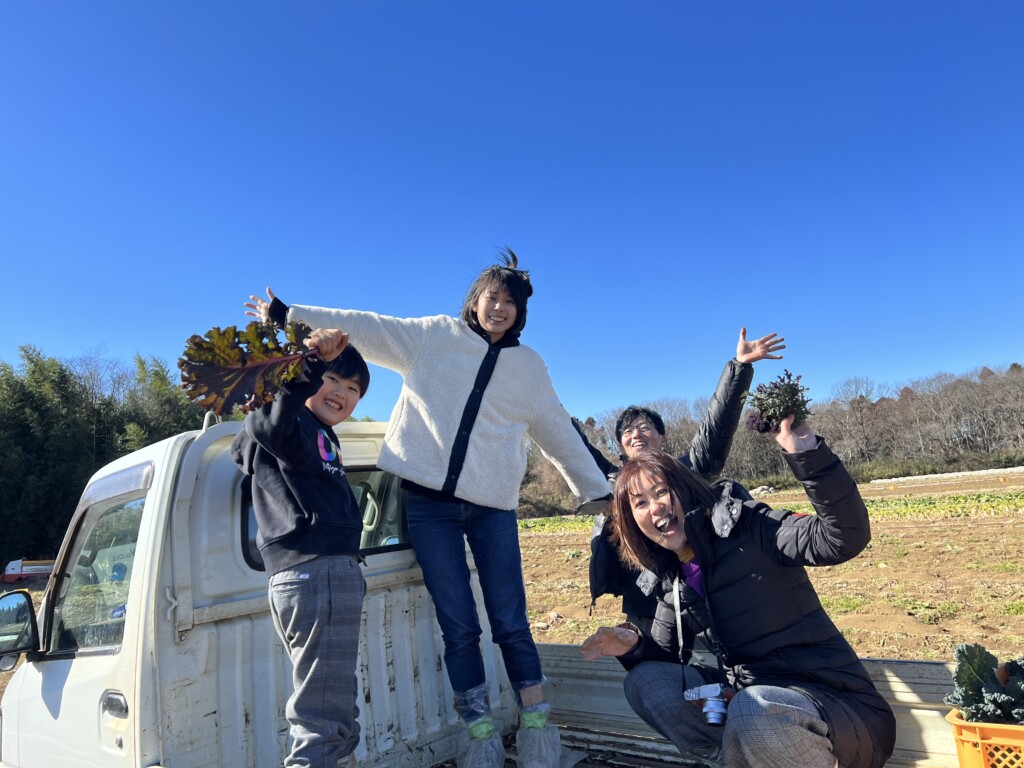
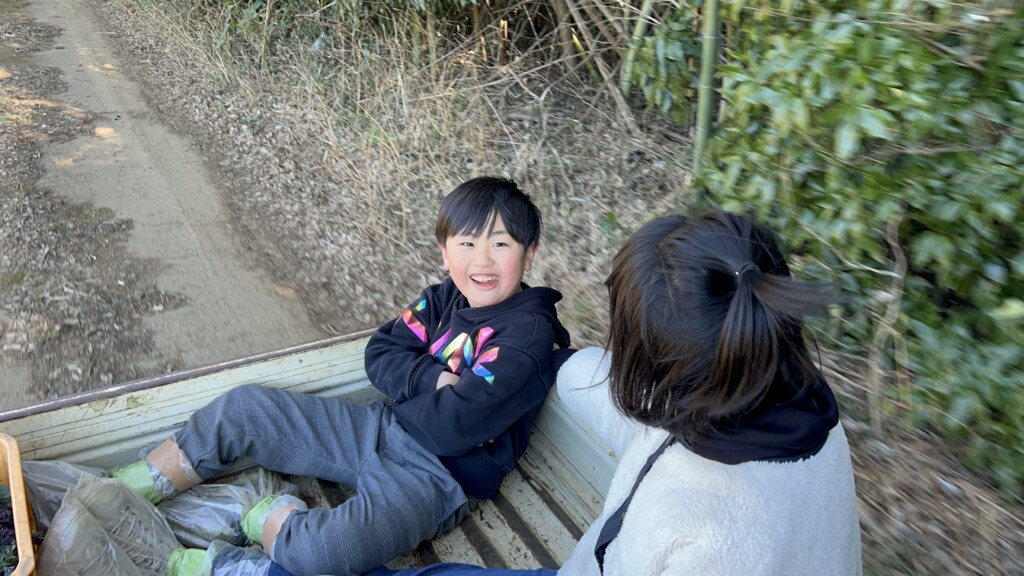
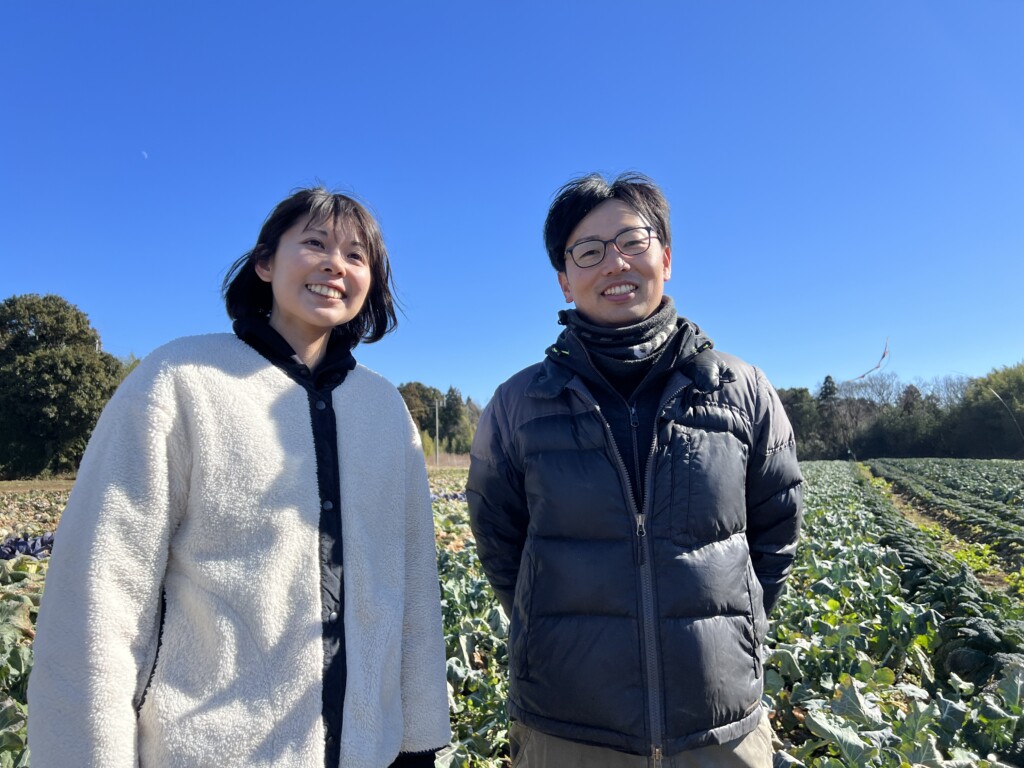
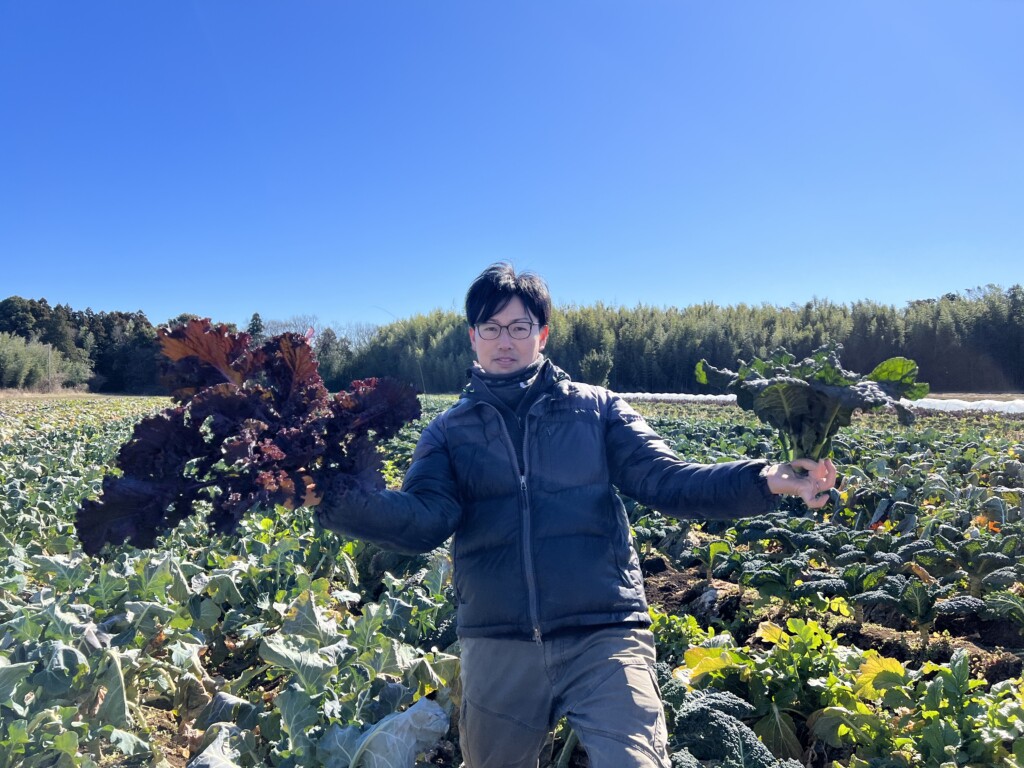
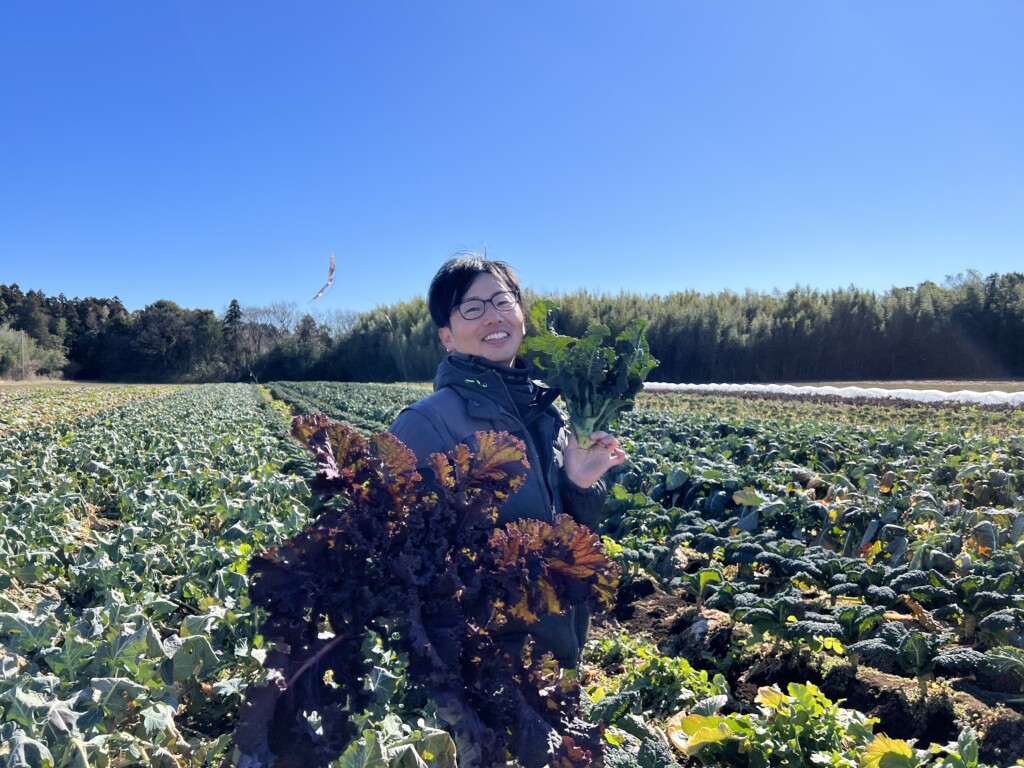
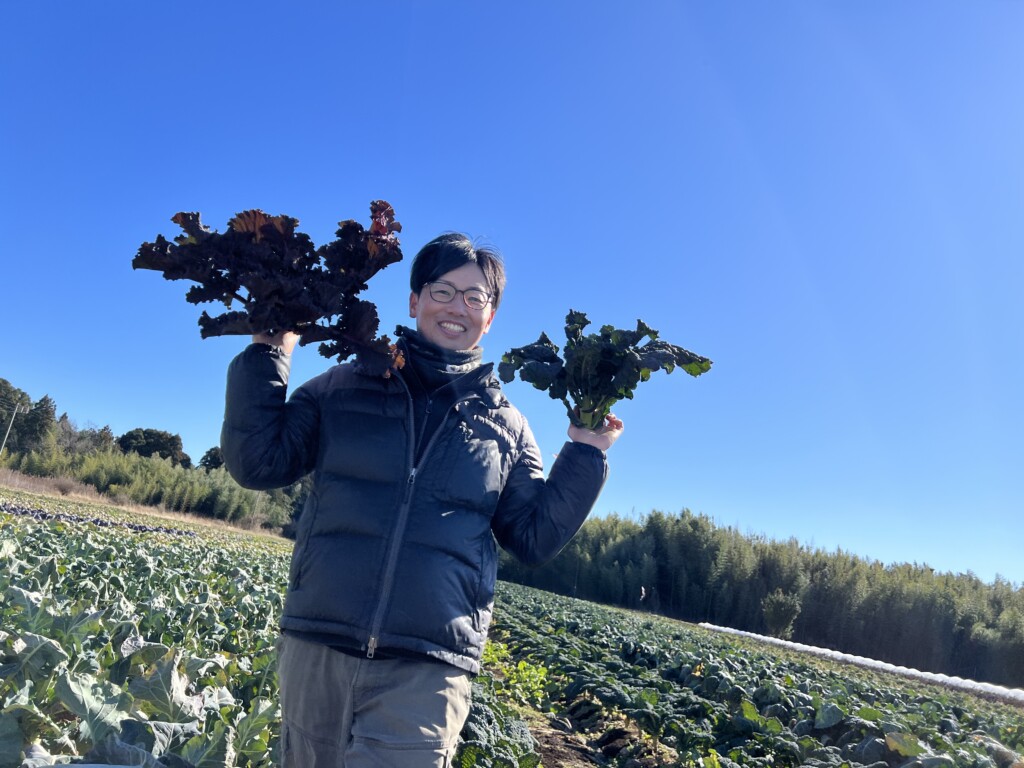
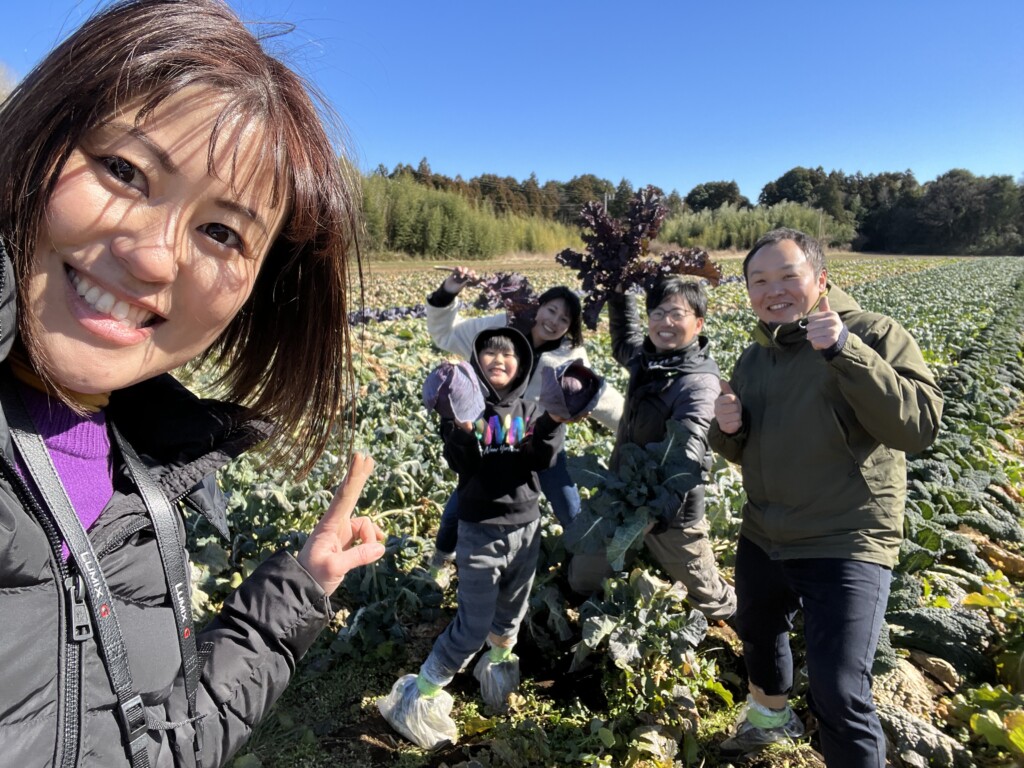
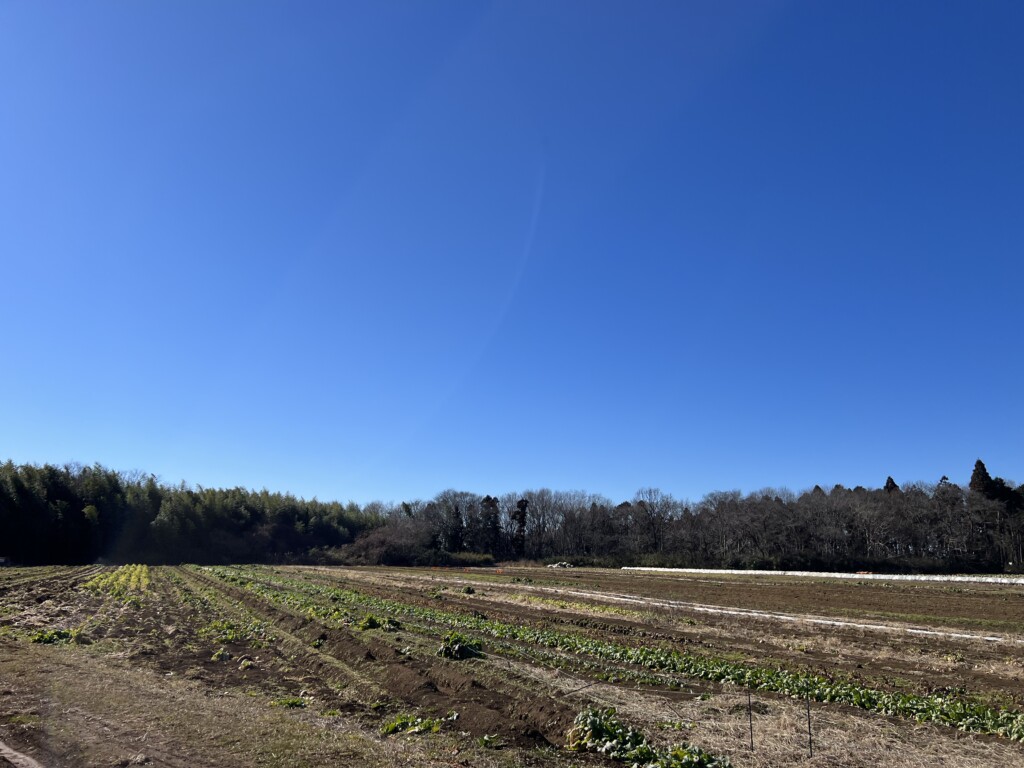
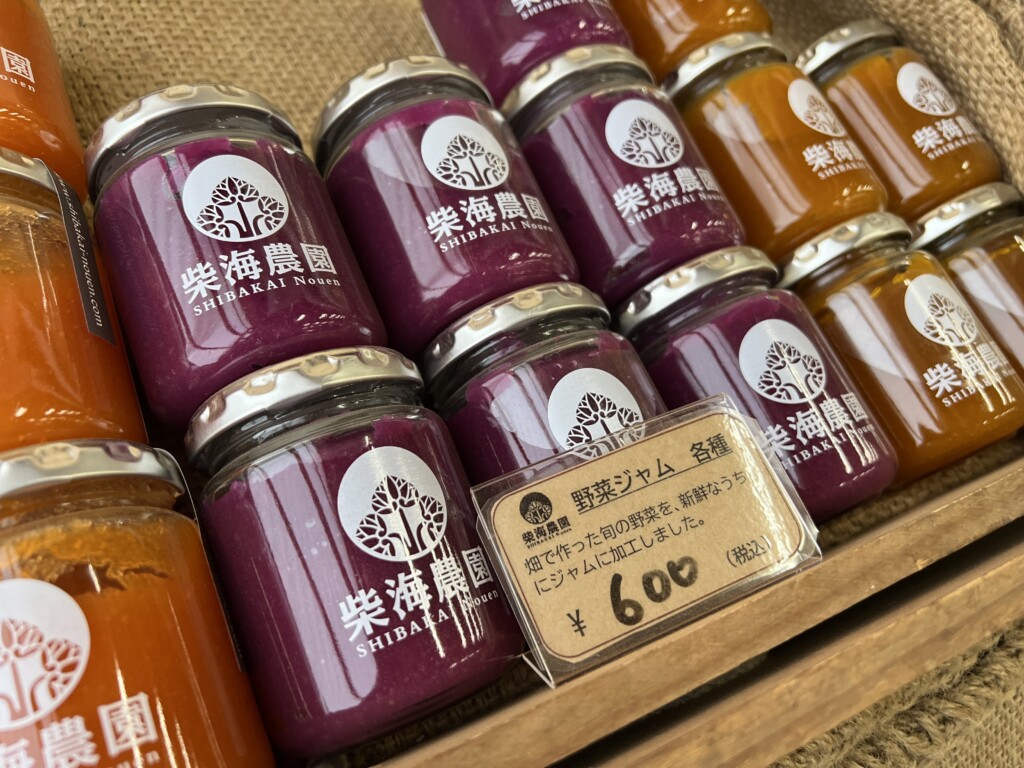
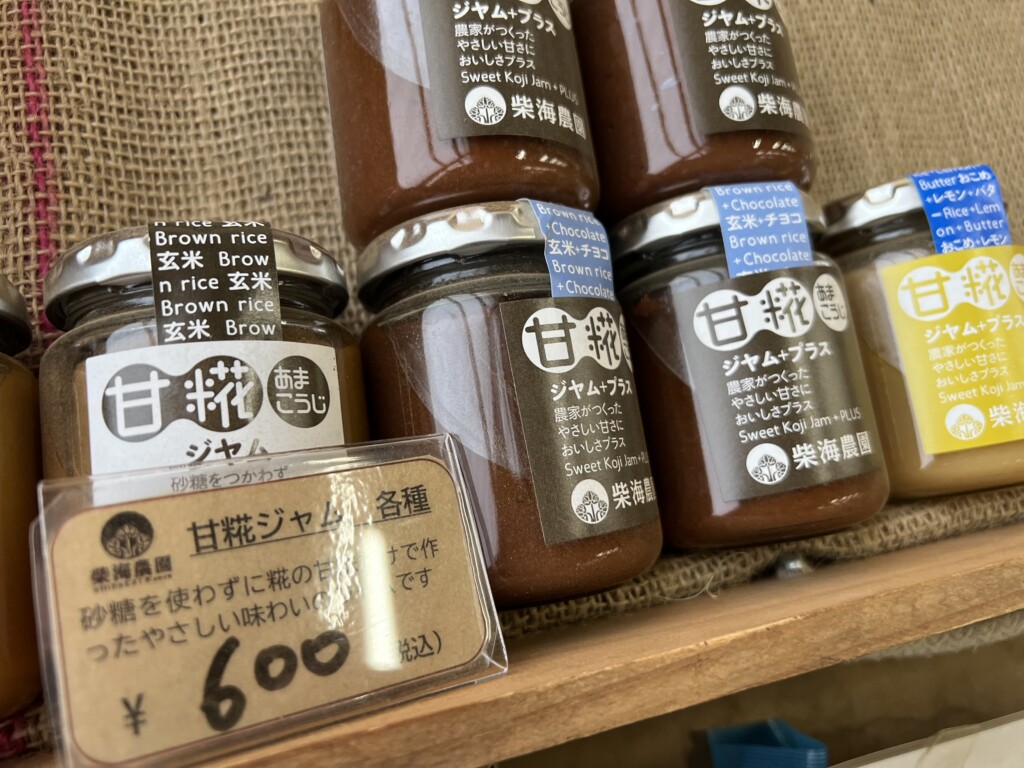
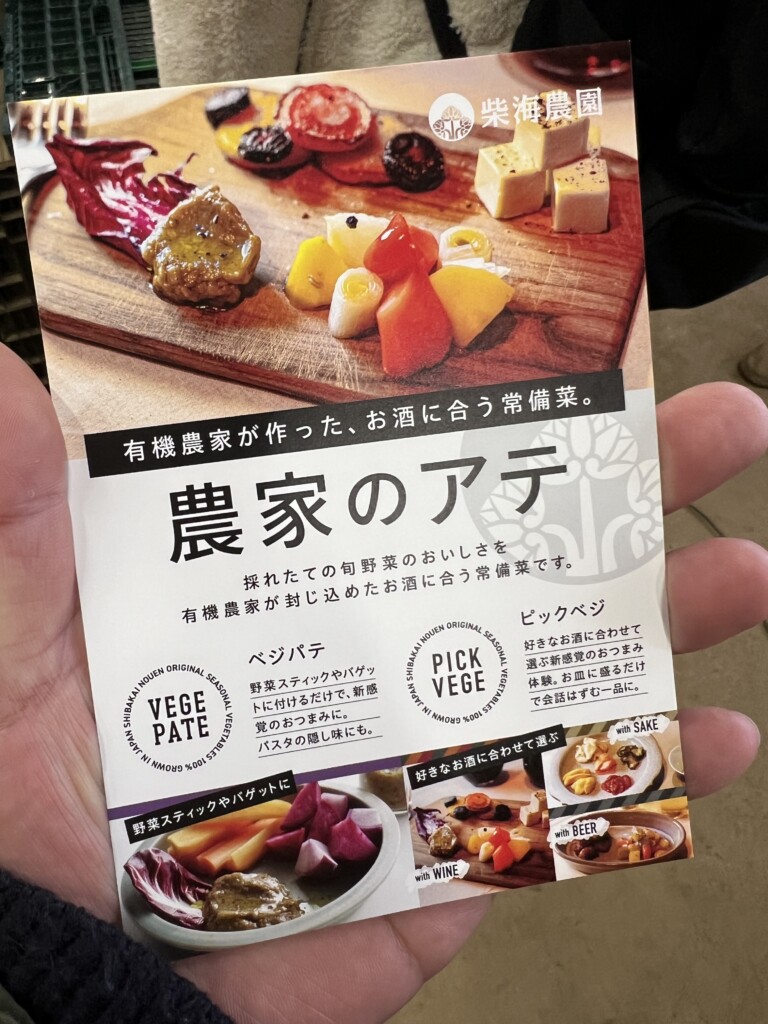
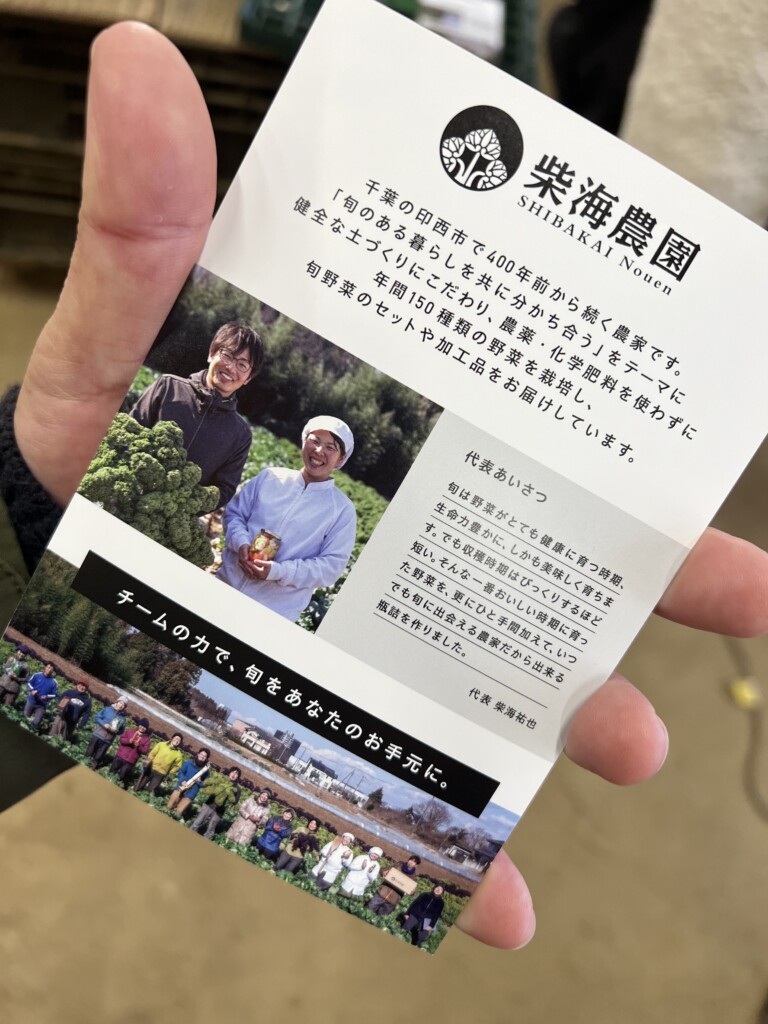
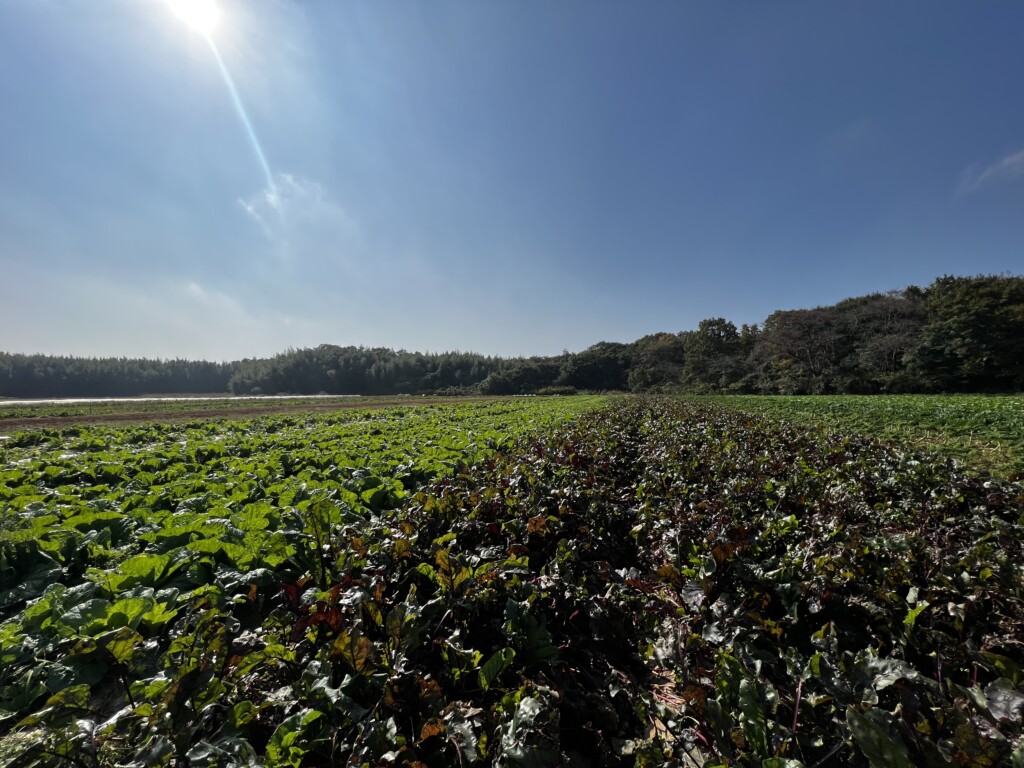
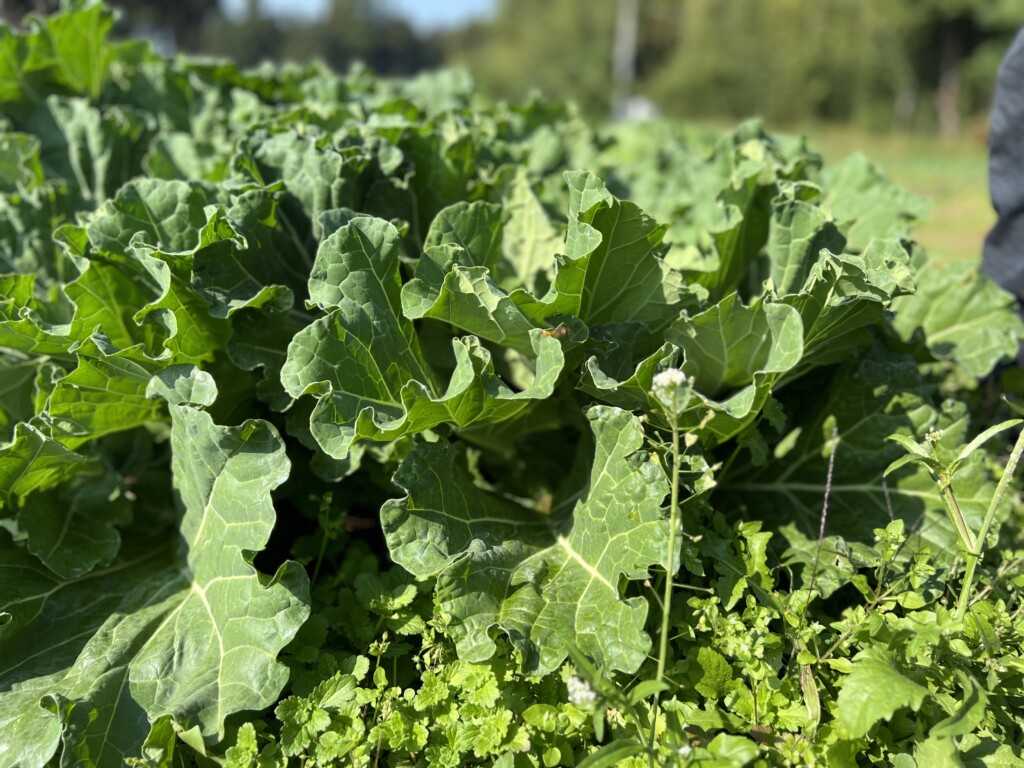
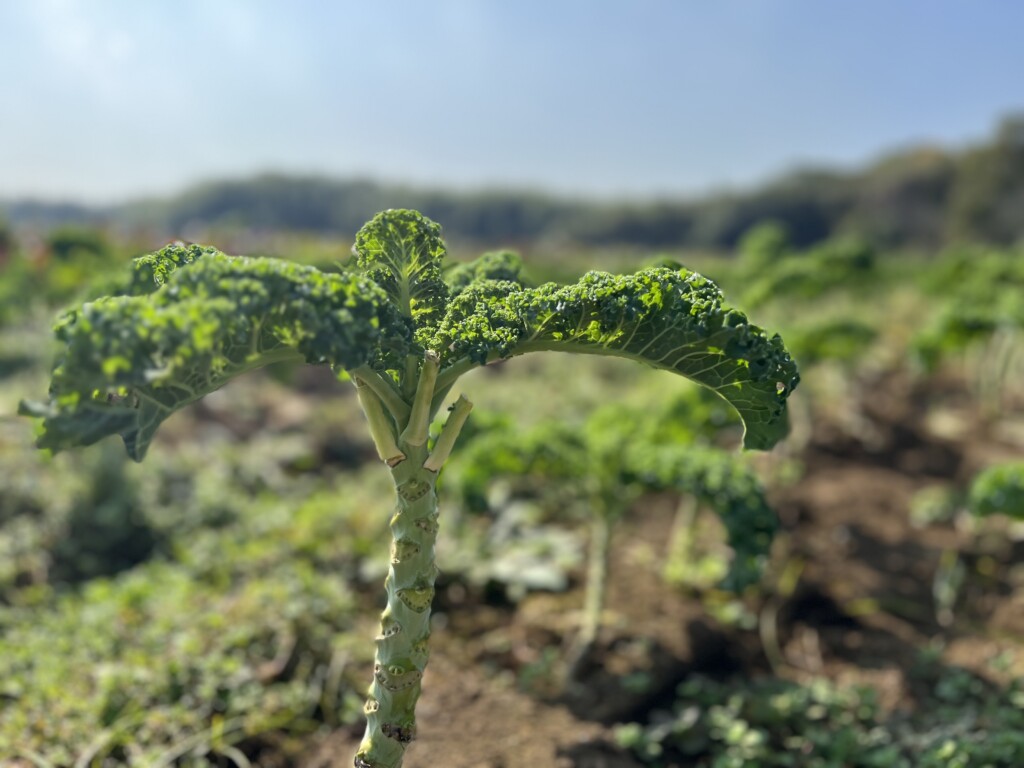
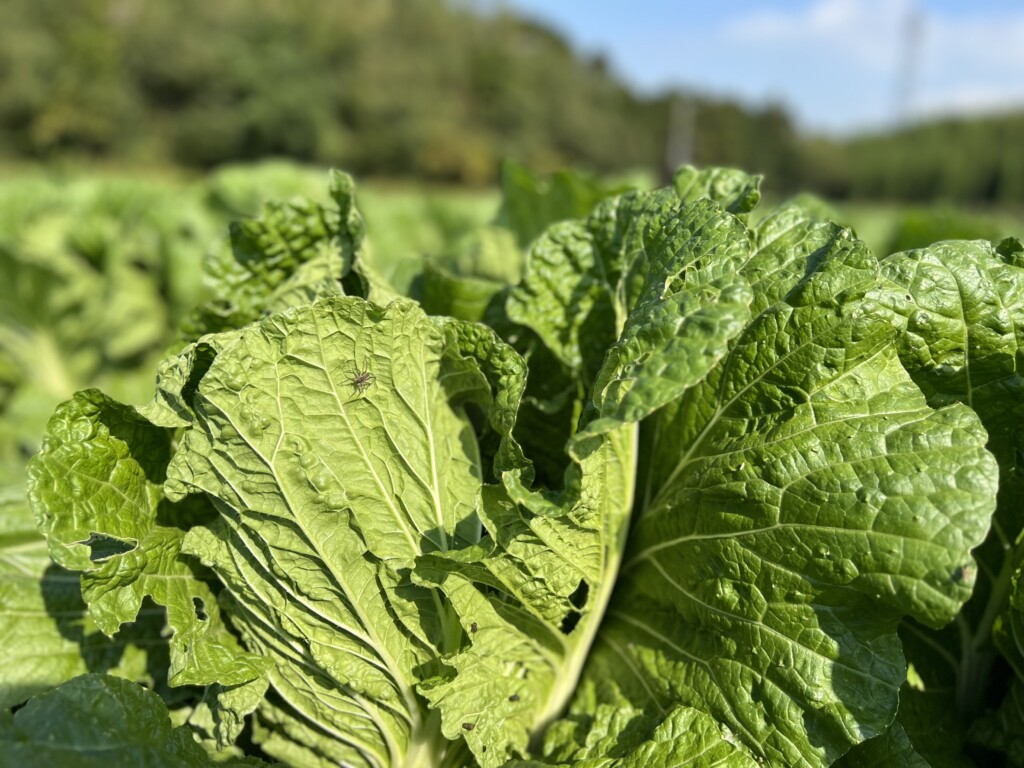
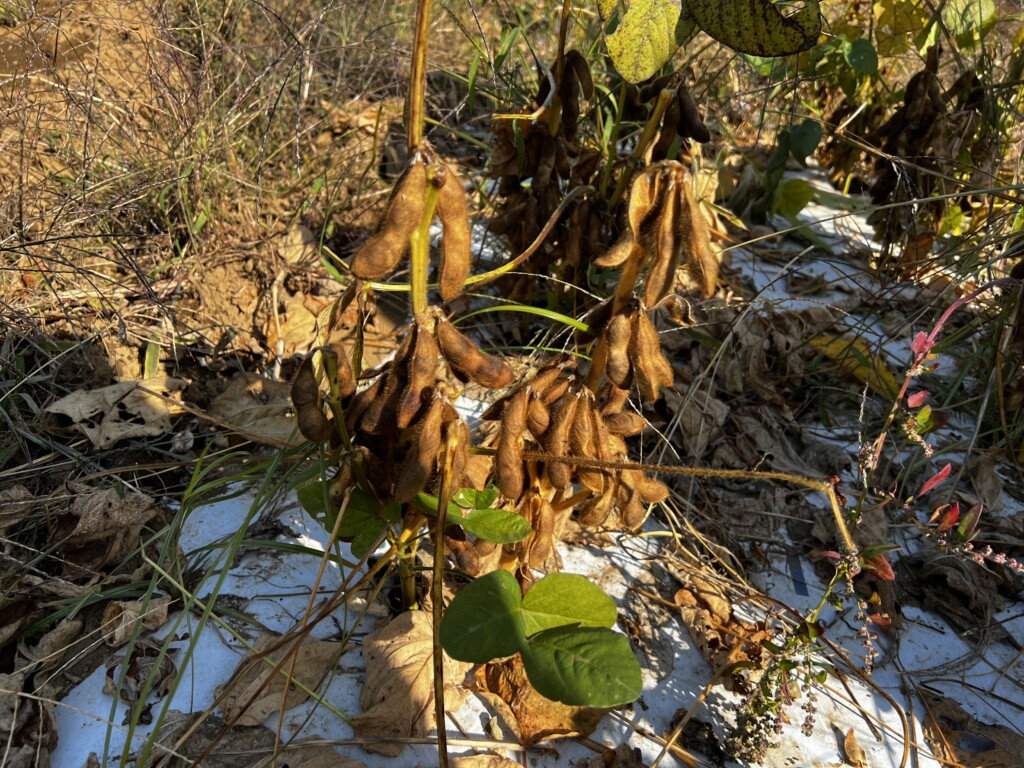


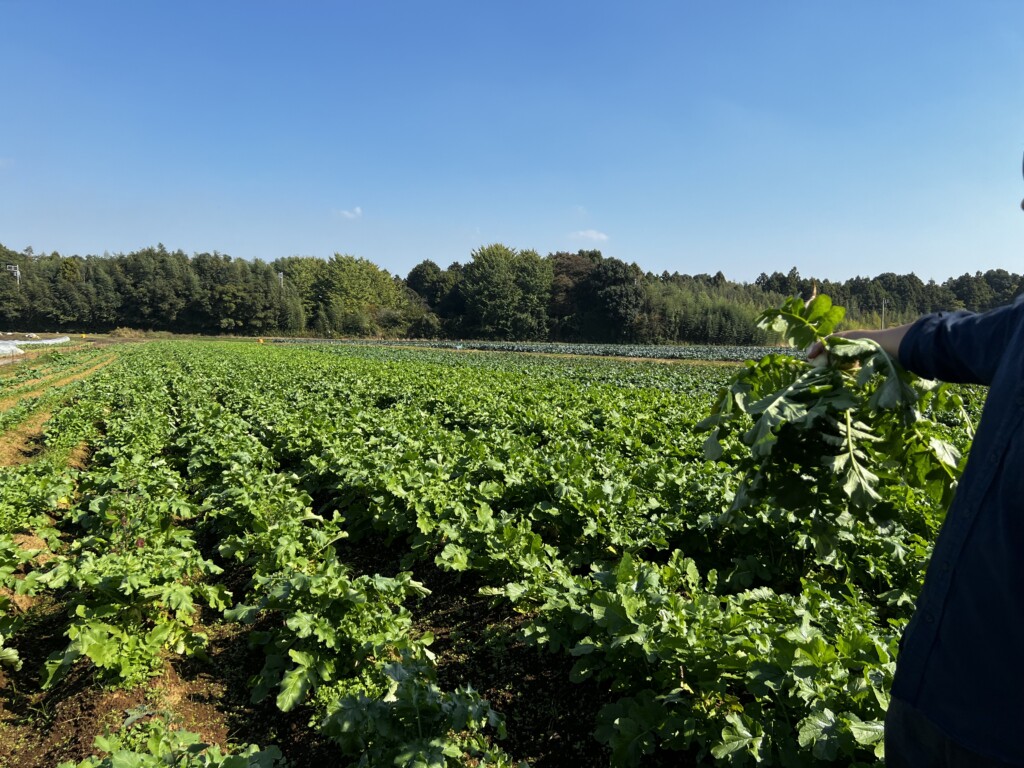
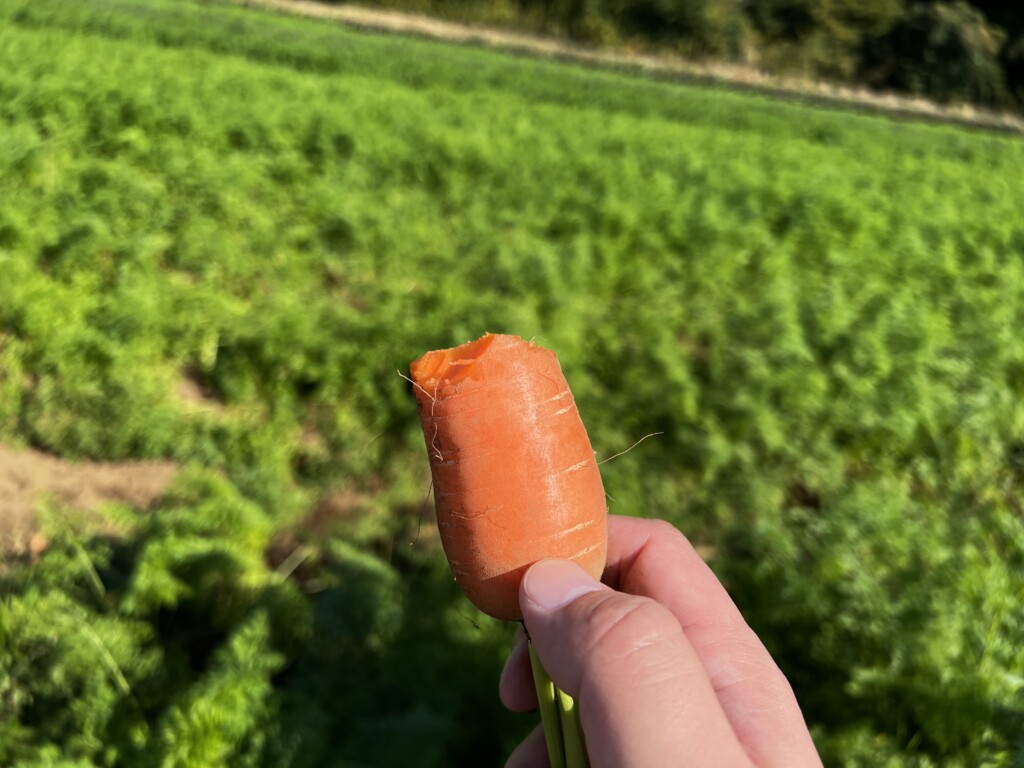
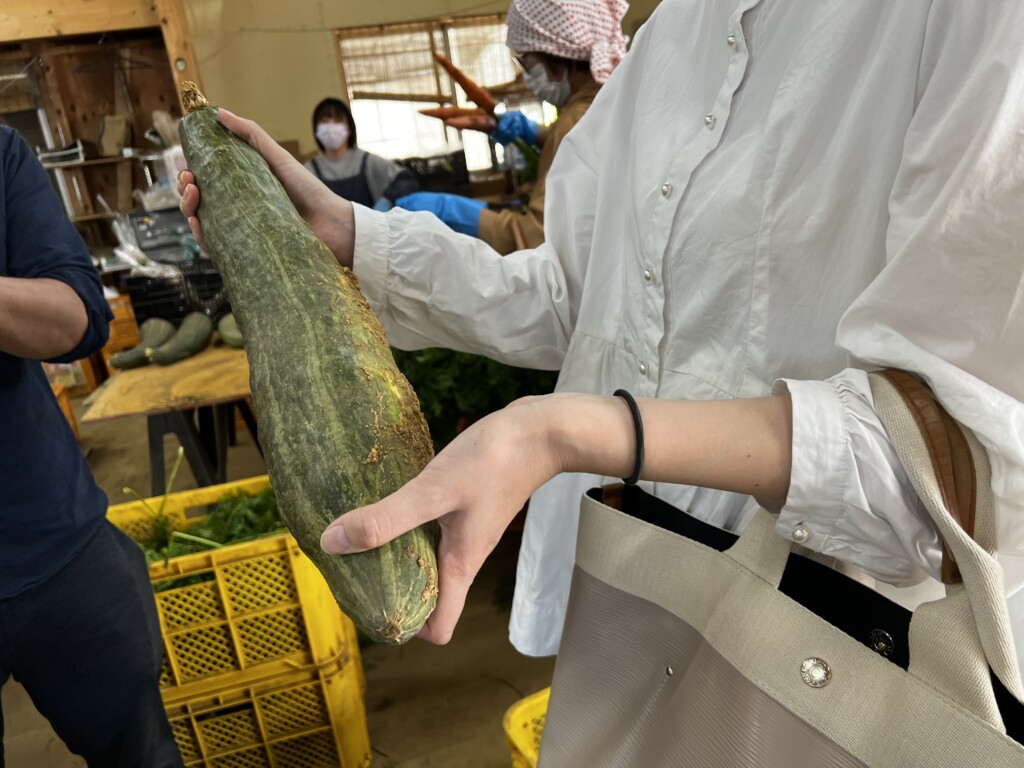
Profile of Yuya Shibakai
Born on March 7, 1986, in Inzai City, Chiba Prefecture. After graduating from high school, he attended Tokyo University of Agriculture and encountered organic farming. After graduating, he worked at the “Farmer’s Kitchen” of National Farm, learning about vegetable procurement, in-store customer service, and management. He started organic farming in his hometown of Inzai City in 2009. He is curious and actively learns by visiting other farms. His hobby is fishing with his children. His motto is “Take it lightly and do it seriously.”
Profile of Shibakai Farm Co., Ltd.
| Establishment | August 2009 |
| Location | 459-1 Seto, Inzai City, Chiba Prefecture 270-1614 |
| Number of employees | 15 people |
| Business content | organic farming |
| URL | http://shibakai-nouen.com/ |




